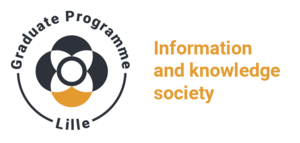‘A human-friendly digital world’ hub
Learn about the Université de Lille’s focus areas of excellence

The Hub’s objective is to develop innovative and secure digital technologies by integrating knowledge from the humanities and social sciences to ensure their acceptability and usefulness.
The digital world will play an increasingly important role in the decades to come. It will profoundly transform social and individual life, the economy and health. In response to the growing expectations of individuals and society, new uses, possibilities and ways of living, working and caring will emerge.
However, in recent years, some of these technologies, both tangible and intangible, have raised major societal issues. They concern biocompatibility, suitability for cognition and ergonomics, as well as shortcomings in terms of security and privacy. The risks of piracy and appropriation have also led to problems of acceptability and rejection. This Hub conducts research into disruptive technologies of the digital world based on the recommendations of studies in the humanities and social sciences, particularly in the field of cognitive science.
The hub’s challenges
Humanising the digital society
Creating innovative concepts for mastering complexity
Developing disruptive technologies for intuitive devices
Cross-Disciplinary Projects
The Cross-Disciplinary Projects (CDP) aim to exploit the interdisciplinary mission of the topic area hubs to address the challenges of transitions. These projects closely link research and education. The CDPs help to raise the university’s profile, enhance its influence and consolidate its position as a stakeholder at the service of society.
WILL international chairs
As part of the France 2030 project WILL (Welcoming Internationals to Lille), the University of Lille is setting up international chairs. These chairs create high-level collaborations between a foreign senior principal investigator (PI), who is an expert in his or her field, and a research team at the University of Lille.
ICMINA

Exploiting acoustofluidics at the micro and nanoscopic scale
Interdisciplinary courses of study
Interdisciplinary course of study, anchored in our societal challenges, are being set up and linked to the ‘A human-friendly digital world’ hub. These courses are developed through projects such as GRAEL for master-doctorate graduate programmes.

The ‘Information and Knowledge Society’ graduate programme equips future professionals with hybrid skills in various key scientific and technological fields that are directly linked to the entrepreneurial and societal environment: data and artificial intelligence, the Internet of Things, photonics, human-machine interaction, etc.

![[Translate to English:] Partenaire [Translate to English:] Accès au site du partenaire : CNRS](/fileadmin/_processed_/0/5/csm_cnrs_56c3662e4f.png)
![[Translate to English:] Partenaire [Translate to English:] Accès au site du partenaire : INRAE](/fileadmin/user_upload/initiative-excellence/images/partenaires/inrae.svg)
![[Translate to English:] Partenaire [Translate to English:] Accés au site du partenaire : CHU](/fileadmin/_processed_/8/7/csm_Logo_CHU_de_Lille_089a7ac546.png)
![[Translate to English:] Partenaire [Translate to English:] Accès au site du partenaire : Centrale Lille](/fileadmin/_processed_/1/3/csm_centrale_lille_e36ec71030.png)